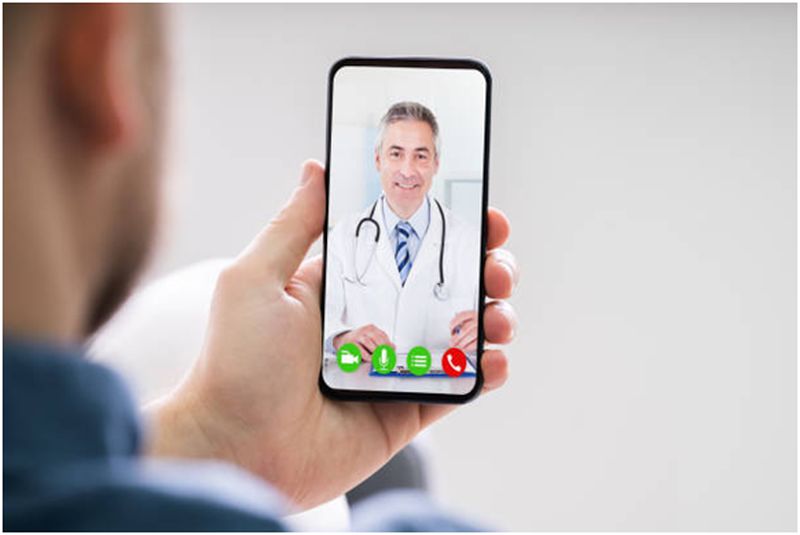Sometimes, seeing a doctor in person isn’t a possibility. Regardless of the reason, the ability of telemedicine to make seeing a doctor accessible, affordable, and convenient is one of its best features. For non-emergency issues, chronic conditions, and even some urgent care concerns, taking the time to get in touch with your telemedicine provider can help you achieve results, get the prescription refill you need, or address vital medical concerns quickly and easily. Modern technology has revolutionized the healthcare industry and telemedicine is the result of many years of technological change, adaptation, and developing new ways to treat patients effectively.
Many insurance providers now offer some form of telemedicine as well, making it one of the easiest ways to see a doctor quickly. It’s not intended for emergency use—it’s best to go to the ER for something requiring that kind of attention—but it can be a boon to anyone needing treatment for a variety of conditions. Here are few reasons to see a virtual doctor:
1. Privacy
 Privacy and security are important parts of healthcare practices. The health insurance portability and accountability act (HIPAA) prevents disclosure of sensitive patient data. A patient’s information should be both private (not disclosed to anyone) and secure (safe from being exposed to unauthorized sources). To accomplish this, encryption and other cyber security measures are implemented into the infrastructure of a telemedicine provider to enable privacy and data protection.
Privacy and security are important parts of healthcare practices. The health insurance portability and accountability act (HIPAA) prevents disclosure of sensitive patient data. A patient’s information should be both private (not disclosed to anyone) and secure (safe from being exposed to unauthorized sources). To accomplish this, encryption and other cyber security measures are implemented into the infrastructure of a telemedicine provider to enable privacy and data protection.
Patients should be careful not to access telemedicine provider websites via unsecured connections or public Wi-Fi. It’s also essential not to share personal information, passwords, or other pertinent data with anyone who doesn’t need it. Aside from these measures, some providers have their own proprietary software with HIPAA compliance built into it, encouraging both the user and the provider to stay safe throughout the interaction.
2. Accessibility
Seeing a virtual doctor makes healthcare much more accessible to a variety of patients, regardless of age, location, and condition. There’s also a measure of accessibility with the type of information and treatments you can get by seeing a virtual doctor. The healthcare and treatment is usually laser-focused and very personal based on the information the patient provides to the doctor.
Personalized nutrition, counseling, treatment plans, and prescriptions with the real-time access to medical professionals is making telemedicine a viable option for treating myriad conditions and gives patients more power to take control of their health and medical issues.
3. Flexibility
 If there’s one essential benefit of telemedicine, it’s the unparalleled flexibility using these services provides. In the early parts of the Covid-19 pandemic, the ability to stay home and avoid crowds was essential to curbing the spread of the virus. Telemedicine successfully enabled this, making it easier for patients to get medical advice and treatments without leaving the safety of their own homes.
If there’s one essential benefit of telemedicine, it’s the unparalleled flexibility using these services provides. In the early parts of the Covid-19 pandemic, the ability to stay home and avoid crowds was essential to curbing the spread of the virus. Telemedicine successfully enabled this, making it easier for patients to get medical advice and treatments without leaving the safety of their own homes.
Outside of this reason, the flexibility of using telemedicine extends far beyond avoiding contact with the outside world. It’s useful for enhancing your work/life balance, getting treatment for minor conditions without the need to go anywhere, and obtaining prescription refills without the hassle of making a full-on doctor’s appointment.
Telemedicine has also shown doctors that many things can be done over the phone, including diagnosing certain conditions and providing some measure of therapy. Remote patient monitoring and other essential improvements to telemedicine are likely on the horizon, which will make it much more flexible, scalable, and convenient than ever before.
4. Large Range of Treatments
Telemedicine is versatile when it comes to treating a wide range of medical concerns. Telemedicine providers are adept at providing basic primary care such as headaches, hair loss concerns, acquiring birth control, counseling, prescription management, and plans for general wellness. They can also handle some urgent care (flu, cold, bronchitis, UTIs, rashes, sinus infections, etc.) and help patients manage ongoing problems.
If you suffer from asthma, allergies, diabetes, hypertension, or other chronic diseases, virtual doctors are essential for providing better treatment plans, follow-up sessions, prescriptions, and medical advice relevant to helping you treat your condition. If you’re suffering from anxiety, depression, or panic, they can also help treat these issues. Mental health treatments are widely available with telemedicine and teletherapy providers are able to help patients work through issues with an eye toward better privacy, increased access, and lower overall costs.
5. Prescriptions
 Prescriptions are just as important as the rest of the visit/consultation. Part of the appointment usually covers either the doctor generating a new prescription or refilling an older one. low-risk, non-controlled substances are usually prescribed by online doctors. These can include antibiotics, steroids, birth control, and pain medication. Certain states may have restrictions on what type of medication can be prescribed by a doctor remotely.
Prescriptions are just as important as the rest of the visit/consultation. Part of the appointment usually covers either the doctor generating a new prescription or refilling an older one. low-risk, non-controlled substances are usually prescribed by online doctors. These can include antibiotics, steroids, birth control, and pain medication. Certain states may have restrictions on what type of medication can be prescribed by a doctor remotely.
During the recent Covid-19 pandemic, the DEA did make an exception to allow controlled substances to be prescribed via telemedicine. With telemedicine, patients can get their prescriptions easier, have better access to refills, and even get home delivery under certain circumstances.
Article Submitted By Community Writer




